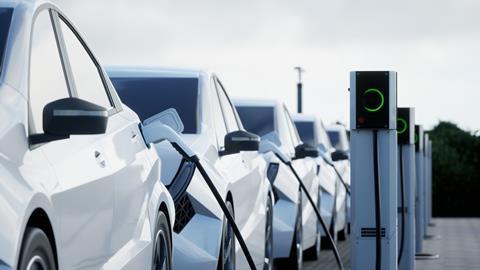
Forecourt operators are sceptical about Labour’s manifesto pledge to restore the 2030 ban on the sale of new internal combustion engine (ICE) cars, dismissing it as a vote winning gimmick.
While the announcement from Sir Keir Starmer’s party came as no surprise, key players in the sector say they are concerned Labour, which is highly likely to form the next government based on current opionion polls, is being unrealistic in its ambitions to so quickly replace petrol and diesel cars with electric vehicles (EV).
Seb Hawtree, a director of Hawtree & Sons in Dorset, said: “I think it’s a great election headline, but the reality of it being achievable is unlikely.”
Guy White, managing director of the Laurels Group, agreed: “It cannot be done. More talks with manufacturers worldwide and a full investment of infrastructure is required.” Guy added: “Who is going to repair them, as we have very little knowledge or training on electric vehicles?”
And Nick Fraser, a director of the Fraser Group, concurred: “it is a shame when it’s used as a political tool. A long-term strategy to green energy is needed and rushing things through isn’t the way to go in my eyes.”
The Conservative government had last year moved the date to start phasing out ICE cars from 2030 to 2035, to give more time to put in place the infrastructure to charge electric vehicles. But Labour’s manifesto says reinstating the 2030 date will give “certainty to manufacturers”, and adds that a Labour government would support the transition to EV by accelerating the roll out of chargepoints.
Labour said that it would also give confidence to the secondhand electric car market by “standardising the information supplied on the condition of batteries”.
But the industry is unconvinced, pointing to an electricity grid in the UK that is already struggling to provide enough power to charge the current number of EVs on the road. Pure electric cars account for around 3% of the UK’s total fleet.
“I don’t believe the UK infrastructure can cope with the increased demand on the grid,” said Tom Buckley, general manager of the Pricewatch Group. “Also you often see chargers out of use and as an EV driver I rarely travel further than the charge from home for that very reason. As a forecourt operator we don’t want to plan to invest further in EV until the end investment required either decreases significantly or the return on investment ramps up.”
“It simply won’t work,” said Oliver Blake, who says he prides himself on being a positive person. He too questions how the power lines and stations will be upgraded in time to cope with a rapid uptake in electricity demand; the high cost of EVs for the public, and the limited battery life of the cars.
“Electric is part of the solution, but we shouldn’t run into it without everything in place to support its future,” he said.
But David Charman from Parkfoot Garage is pragmatic. “All I know is that many manufacturers, including Audi, never took 2030 off their schedule. It will happen when it’s the right thing to do.”
He is hopeful that if hydrotreated vegetable oil (HVO) becomes the fuel of choice exceptions might be made for diesel engines using this greener fuel as the deadline moves closer. And he added: “By the time we get to 2030, cars will be made so well they will easily last 20 years. I don’t think it’s a huge problem if Labour re-introduces the 2030 phase out date.”
































